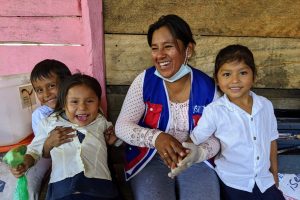Are you ready to embark on a journey through Bolivia’s public health system? Brace yourself for the eye-opening insights and remarkable innovations that have shaped the country’s approach to healthcare. From conquering health inequalities to breaking down access barriers, Bolivia has made incredible strides. But the journey isn’t over yet. Join us as we explore the successes and challenges of Bolivia’s health system and discover the path it’s forging towards a healthier future.

Historical Context: The Evolution of Bolivia’s Public Health System
You can trace the evolution of Bolivia’s public health system through its rich historical context. Bolivia’s public health system has undergone significant changes over the years, reflecting the country’s socioeconomic and political developments. Prior to the 1952 National Revolution, healthcare in Bolivia was characterized by limited access and poor quality services, with a focus on urban areas and the elite. However, after the revolution, there was a shift towards a more egalitarian approach to healthcare, with the establishment of universal health coverage and the creation of the National Health Service. This marked a significant milestone in the country’s public health system, as it aimed to provide healthcare services to all citizens, regardless of their socioeconomic status. Despite ongoing challenges, such as inadequate funding and infrastructure, Bolivia’s public health system continues to evolve, with efforts to improve accessibility, quality, and equity in healthcare delivery.
Key Challenges: Addressing Health Inequalities and Access Barriers
Addressing health inequalities and access barriers is a key challenge in Bolivia’s public health system. Despite efforts to improve healthcare access, disparities persist among different social groups and geographical areas. According to a study conducted by the Pan American Health Organization, indigenous populations in Bolivia have higher rates of poverty, malnutrition, and inadequate access to healthcare compared to non-indigenous populations. Limited infrastructure and resources in rural areas further compound the issue, making it difficult for individuals to receive timely and appropriate healthcare services. Additionally, the fragmented nature of the public health system, with multiple actors and stakeholders, creates coordination challenges and gaps in service delivery. To address these challenges, Bolivia’s government has implemented policies to expand healthcare coverage and improve access in underserved areas. However, sustained efforts and investments are needed to ensure equitable healthcare access for all Bolivians.
Innovative Solutions: Bolivian Approaches to Healthcare Delivery
Innovative solutions are being implemented in Bolivia to improve healthcare delivery and address disparities in access and quality of care. One such solution is the implementation of telemedicine, which has greatly improved access to healthcare in remote and rural areas. Through telemedicine, patients can receive medical consultations and access specialized care without having to travel long distances. This not only saves time and money but also ensures that individuals in underserved areas receive the care they need. Another innovative approach is the use of community health workers, who play a crucial role in bridging the gap between healthcare providers and the community. These workers are trained to provide basic healthcare services, health education, and preventive care, thereby improving healthcare access and promoting health literacy. Overall, these innovative solutions are making a significant difference in healthcare delivery in Bolivia, ensuring that everyone, regardless of their location, has access to quality care.
Future Directions: Building on Successes and Overcoming Remaining Hurdles
Looking ahead, it is important for Bolivia to continue building on the successes achieved in improving healthcare delivery and overcoming the remaining hurdles. The country has made significant progress in recent years, with the implementation of innovative solutions such as telemedicine and community health workers. These approaches have helped to bridge the gap between urban and rural areas, ensuring that all Bolivians have access to quality healthcare services. However, there are still challenges to address. One of the major hurdles is the shortage of healthcare professionals, particularly in remote areas. To overcome this, Bolivia should focus on expanding medical education and training programs, as well as implementing incentives to attract and retain healthcare workers in underserved regions. Additionally, efforts should be made to address the underlying social determinants of health, such as poverty and inequality, which can impact access to healthcare. By addressing these remaining hurdles, Bolivia can further strengthen its public health system and ensure that all its citizens receive the care they deserve.
